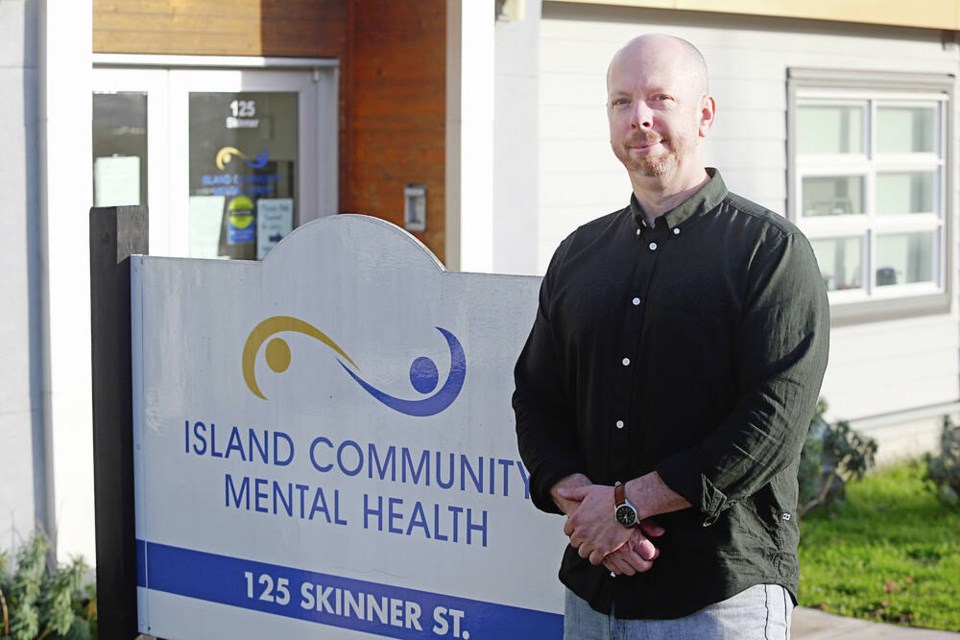The waitlist to receive mental-health services may have climbed by 50 per cent this year, but staff at Island Community Mental Health will still welcome anyone looking for help.
Despite a caseload of 800 to 900 clients a year, the non-profit organization says it doesn’t turn people away.
“That first contact is important. We start by listening to them. We start by giving them hope. It may just be a few minutes — or more — but it cements whatever relationship we have with them going forward,” said Chris Forester, executive director of the organization.
He knows from experience that when someone comes looking for help, a rapid response pays dividends — it’s easier to nip the problem in the bud than to wait and have to deal with deteriorating mental health down the road.
One in five people will experience a mental-health problem or illness — in one form or another — according to the Canadian Mental Health Association. The pandemic didn’t help.
“People became hyper-connected digitally, with artificial connections such as Zoom meetings, but people lost their feeling of connectivity to others, leading to social isolation and poor mental health,” Forester said. “They developed a silo mindset, with the silos becoming an echo chamber of their own thoughts.”
One of the programs offered by Island Community Mental Health is Grow, funded by the Victoria Foundation, which helps individuals build skills to help them better understand their mental health and reconnect with the community.
“Thanks to funding by the Victoria Foundation, we are able to give clients one-on-one support as they transition to wellness and back into the community,” said Forester, who has been at the helm of the organization for the last two years.
He said that it was helpful that the funding was flexible, allowing the organization to support graduates who have recurring needs.
For many, experiencing a mental-health condition can be frightening and seem overwhelming. While it’s on the wane, there is still a lingering stigma attached to mental illness, causing people to sometimes feel embarrassed to inform family and friends of their condition.
Because people suffering mental-health disorders often have no visible manifestations, those who don’t seek help can end up suffering in silence and alone.
Some of the success of the programming, according to Forester, can be attributed to the peer support clients receive.
“I believe peer support is fundamental. These are people who have lived expertise — the experts in the field,” he said.
The organization has a staff of 120, which includes six peer supporters.
It delivers a “robust wrap-around” spectrum of mental-health services that includes counselling and support programs for seniors, education and employment.
It offers independent housing as well as licensed residential care for those who require support and supervision while recovering from mental-health challenges.
“There is incredible pressure on the mental-health system and we are like a pressure-relief lever,” said Forester. “We are connected with the community and we know from experience that the more connected we are, the greater the wellness outcomes.”
Island Community Mental Health, formerly known as Capital Mental Health Association, has been offering mental-health services services in the capital region since 1956.



